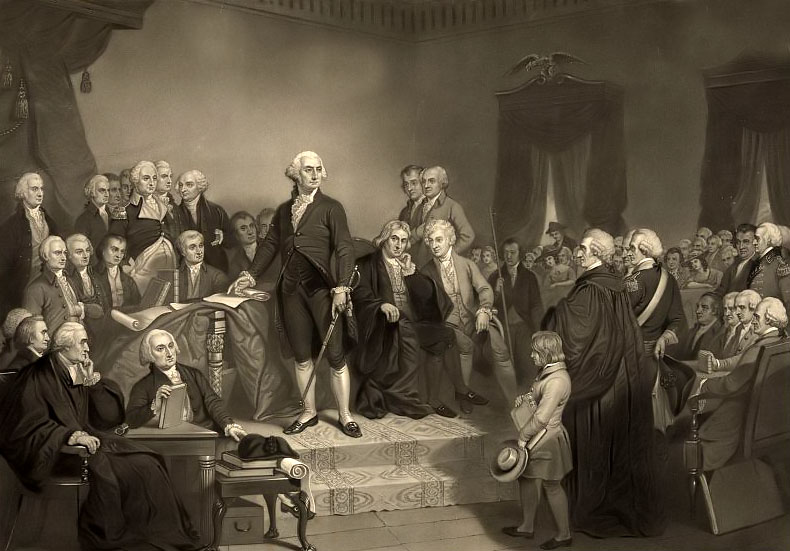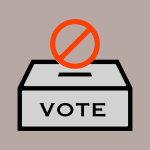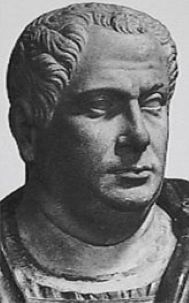I know, right? It’s not equinox, solstice, or a cross-quarter day. It’s not even a full or new moon, and here I am blogging!
I’m inspired, in part, because for the first time in ages, I’m having big fun with a small assortment of creative writing-related endeavors. There are other things I could be writing, I’m saying. I’m writing this, because with all that’s going on in American politics these days, there’s a specific, mind-boggling disconnect I feel the need to expound upon. To wit: if all the momentum is with the Dems, if progressive policies are broadly favored by wide margins, if For-the-People Harris is joyous and Hump-the-Flag Trump is in the dumps, why do they keep saying, “It’s a close race,” “We’re the underdogs,” “Razor-thin margins”?
Here’s why.
One of the foundational ideas behind a democratic election is one person, one vote. Simple concept, great in theory. But “personhood” has been and still is a nasty thorn in America’s electoral side.
In fact, it’s thornier than I realized. Until I did a bit of research into the history of voting rights (like, today), I thought that at our nation’s inception, only property-owning white males had the right to vote. And I thought the only expansion of those rights prior to 1870 – when the 15th Amendment ostensibly gave Black men access to the ballot box – simply extended propertied white guys’ voting rights to un-propertied white guys.
Turns out, when George Washington was elected in 1789, Catholics, Jews, and Quakers couldn’t vote in some states. Free Black men could vote in some states. In New Jersey, widows and unmarried women who owned property could vote as well. Who knew?
New Jersey revoked the rights of Black men and all women in 1807. New York State didn’t eliminate property requirements for white male voters until 1821, simultaneously deciding that the right to vote for “persons of color” was contingent on owning property worth at least $250 “over and above all debts.” That’s about $7,000 in today’s money. We’re paying 27.84 times as much for necessaries as people did in 1821; our dollars only buy 3.6% of what they could buy back then. (Et voilà! La digression du jour!) Maryland became the last state to remove religious-based voting restrictions when they gave Jews the vote in 1828. Jewish men, that is. I mean … yeah.
Six years after the aforementioned 15th Amendment revised the Constitution to ensure states couldn’t abridge the right to vote on the basis of “race, color, or previous condition of servitude,” the Supreme Court denied Native Americans that right by declaring they weren’t citizens. Six years later, Chinese immigrants lost their citizenship and right to vote under the Chinese Exclusion Act. Five years after that, the Dawes Act granted Native Americans citizenship and gave Native American males the right to vote. Just one catch; to get the perks, they’d have to sever their ties to their tribes. (Omg, I can’t even. Feckin’ Machiavellian.)
The voting-rights timeline is a hodgepodge of alternately granting and denying personhood – aka voting rights – to the same segments of society over and over again. Fast-forward to the 21st century, surely we’ve sorted out who qualifies as an American “person” and, on paper at least, have conferred the right to vote on all who meet their state’s legal criteria, right?
Sort of. While poor people, People of Color, Democrats, citizens belonging to ethnic and religious minorities, and other possibly Left-leaning folks certainly have the right to vote, the whole point of gerrymandering, closing polling places and removing ballot drop-boxes in Blue districts, shortening voting hours, and passing more restrictive voting laws (as 28 states have done since the last presidential election) is expressly to deny these Americans their right to vote. According to the non-profit Brennan Center for Justice, at least 19 states passed 34 vote-stifling laws in 2021 alone. Definitely worth noting that the Right’s voter intimidation/suppression efforts disproportionately affect Black, Latino, and Native communities.
Conversely, the Supreme Court has conferred personhood on corporations, ruling that they can exercise their 1st Amendment Right of Free Speech by spending all the money they wish on influencing state ballot initiatives (1978) and/or by placing their deep coffers directly into the hands of their preferred local, state, and federal candidates (2010).
In a two-party system, one person/one vote only looks good to one of the parties, and only if that party is decidedly ahead. Nationally, the Republicans have been running behind for a while now. Most Americans are in favor of affordable health care, a woman’s right to choose, everyone’s right to love, gun regulations, raising taxes on gazillionaires and corporations, legalizing marijuana, clean energy – all that stuff. That’s why the old GOP and its current incarnation, the extremist MAGA Christian Fundamentalist Trump-Cult Party, are working so hard to rig things so people who typically don’t vote Republican either can’t vote, are too intimidated to vote, live in a district where their votes don’t mean anything, or can have their ballots thrown out on a bogus technicality.
If this sounds far-fetched, here’s the MAGA party’s Fearful Leader last July, explaining the situation to the crowd at the Believers’ Summit – a gathering focused on arming attendees with “practical knowledge and strategies to live out their faith boldly and counteract the prevailing ‘woke’ narratives,” according to its website.
“We have to win this election, most important election ever. We want a landslide that’s too big to rig. If you want to save America, get your friends, get your family, get everyone you know and vote. Vote early, vote absentee, vote on Election Day. I don’t care how, but you have to get out and vote. And again, Christians, get out and vote just this time. You won’t have to do it anymore. Four more years, you know what? It’ll be fixed, it’ll be fine, you won’t have to vote anymore, my beautiful Christians.
“I love you, Christians. I’m a Christian. I love you, get out, you gotta get out and vote. In four years, you don’t have to vote again, we’ll have it fixed so good you’re not going to have to vote.”
Guess you noticed that isn’t a bust of Dingbat Donald above? Good eye. That’s the vile and universally-loathed Vitellius, Emperor of Rome for a mere eight months, April to December AD 69. (Image provided by Michael Reynolds, many thanks!) There’s an uncanny resemblance, no? In looks and, as it happens, in personality and behavior. According to the Roman historian Suetonius, Vitellius’ default modes were “luxury and cruelty.”
Now I’m double-digressing. Must be time to wrap up.
So let me just say, noxious as it is, and despite that I’ve spent this entire blog talking about it, to my mind, voter suppression isn’t the #1 reason this is a tight race. With our fundamental human rights, American democracy, and the planet at stake, people have been showing up to vote in great numbers. Long miles, long waits, laws that forbid outside actors giving food or water to people waiting at polling stations all day and in all weather, bogus raids on the homes of Latino Democrats, striking names from state voter rolls en masse – the more obstacles the far-Right throws in their path, the more determined people are to reach that ballot box.
No, the #1 reason this is a tight race is rooted in another foundational democratic idea … TBA in the next and final installment of Double Jeopardy.
Watch this space.






Great information thx
You’re so welcome :)
Thanks, I learned a few things about history here!
And ya haven’t even gotten to the Electoral College yet!
Shhhhh! Don’t blow the big surprise!
Can’t wait!
I’m on it …
Ya big meaner! ;-)
What? This one wasn’t long enough for ya? ;)
You know me :-)
<3